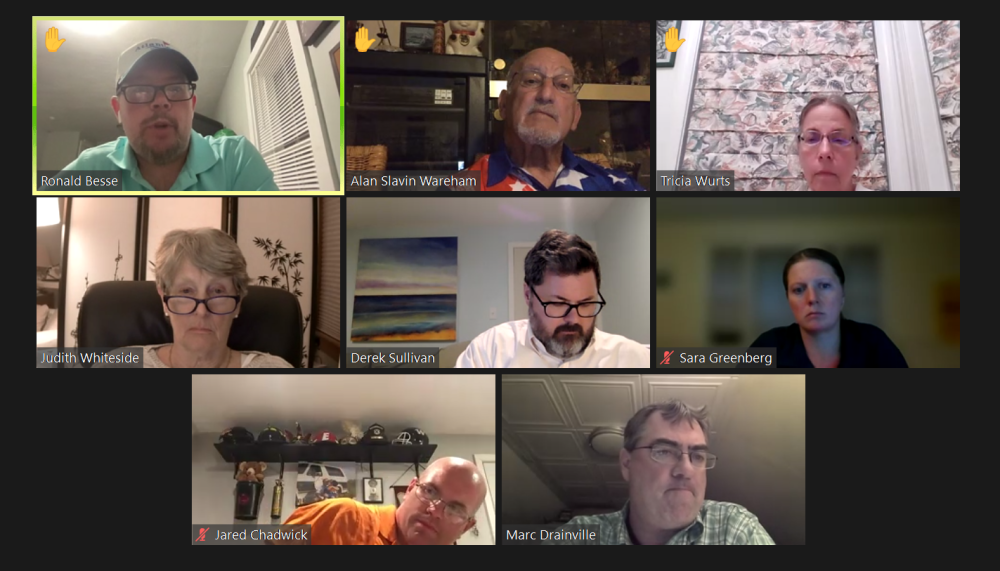Select Board votes 3-2 against of $36 million sewer project due to unknown additional costs
The Select Board on Tuesday voted 3-2 to recommend voters reject a request for $36 million to make repairs to the town’s sewer plant.
The request to borrow $36 million is the centerpiece of a July 24 Special Town Meeting.
The Sewer Commission and outside consultants have argued that repairs to parts of the facility that are reaching the end of their useful life are critical to keeping the plant running.
Members of the Select Board who argued against the proposal expressed concern that the $36 million was just the tip of the iceberg and that more information about all needed sewer plant work was needed before committing to this expenditure.
Select Board member Alan Slavin, who voted no, said, “I don't believe this $36 million is going to fix the issues overall.”
He added, “I say we have to look at possibly a second facility.”
Select Board member Ronald Besse, who voted no, said, “Saying that there are other costs that are coming is like me walking into a field of landmines and hoping that I don't step on one.”
Select Board member Jared Chadwick also voted no.
Even Select Board Clerk Tricia Wurts who voted in favor of the expenditure was concerned these repairs would only be “band aids.”
Select Board Chair Judith Whiteside, who voted yes, said, “I just want these numbers to be absolutely clear to the public. This is a hot topic, and there has been some confusion about what we're being asked to do, and what the cost to the users is.”
The Water Pollution Treatment Facility, which was opened in 1978 and received a major upgrade in 2005, is in need of new equipment that has reached life expectancy, including a headworks and clarifier. However, additional work will likely be necessary in the near future.
Sara Greenberg of consulting firm GHD explained that the headworks is used in the first stage of the wastewater treatment process. Its function is to remove rags and materials such as grit and sand that, if passed onto the next stage, could cause damage and further complications in the treatment facility.
Greenberg said the clarifier is a part of the second stage of treatment where densier pieces are expected to fall to the bottom of the tank while water passes through the upper zones. However, this process is failing and the tank is also not deep enough to handle the current intake.
The Sewer Commission has been in the application process for the State Revolving Fund, which would allow the town to borrow $36 million and pay it off with a zero to 2% interest rate.
Greenberg said there are potential costs of not proceeding with this project as well, including fines as well as loss of eligibility for the low interest loan and some grants.
Bernard Pigeon, chair of the Sewer Commission, said the cost of repaying the loan would fall to users of the sewer system. He said the estimated cost per residence would be $80 to $100 per year.
Slavin said those working on the project “keep coming back with repairs and new things, but never really fix and finalize everything.”
Mark Drainville, a consultant from GHD, said, “There are additional costs that are coming in subsequent years. They're being developed as part of the comprehensive planning project.”
He added, “These two items that are part of this project are the most urgent and they're considering the future needs of the facility and future flows that would be coming into the facility … but the costs are being developed as part of this plan.”
Besse said he doesn’t want to agree to an expected cost of $100 per user residence and then find out it’s going to be much higher.
Pigeon said the elevated costs of this project are due to inflation. “That's the reality. And I'm as frustrated as you are Mr. Besse because there aren't any answers that can pop up that will satisfy the needs of the town and make it at least reasonably acceptable for the users.”















